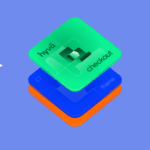Network Provider
A network provider is a provider of networks that are necessary for managing content on the Internet. In Germany, network providers are also known as Internet service providers, or ISPs for short, and simply providers. The services of network providers can be accessed and used via the Internet. The most classic services provided by providers are Internet access and e-mail accounts. In particular, they offer networks and intranets. For the provision of these services, the network provider charges a fee.
The hosting services of network providers
The providers offer various hosting services to their customers. Basically, this means access to the Internet. However, network providers offer their customers additional hosting services. As a rule, this means the provision of networks and company-internal intranets. This is particularly useful for companies and public authorities. The network can be used to store various data that can be accessed by certain users from all over the world. Such networks were very expensive for a long time. What is sold is a certain volume of data as well as a network bandwidth. Network providers usually sell their services initially to an Internet access provider, which in turn sells its services to the end customer. Network providers are often also Internet access providers. They then offer additional services, such as mail hosting. This refers to all services that have to do with email. Domain hosters are another service. Here, the customer receives a domain, i.e. a specific Internet address.
Known network providers
In recent years, the number of providers and network providers has increased steadily. Before 1995, Deutsche Post had a monopoly on this service. Since then, there have been more and more network providers on the market. T-Online, a subsidiary of Deutsche Telekom AG, is currently the best-known network provider. Other network providers include 1&1, Alice, Arcor and o2online.
The liability of network providers
The so-called Telemedia Act regulates when network providers are liable. For a long time, it was debated whether a network provider could be held accountable if it managed illegal content of its customers. In the meantime, the issue has been resolved in such a way that a network provider is only liable to prosecution if it has knowledge of the unlawfulness of the content. However, it is often difficult to prove this. If the network provider has initiated the forwarding of illegal content, he is also liable to prosecution.










